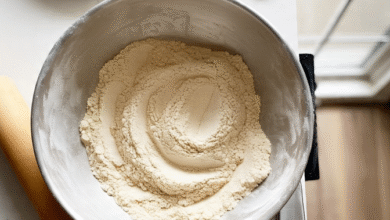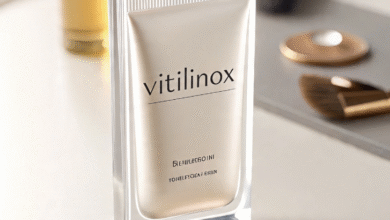Stay Safe and Happy: How to Create an Infection Free Zone in Your Life

An infection free zone is a place where germs and sickness can’t easily spread. This can be your home, school, or even your office. When you make an infection free zone, you help everyone stay strong and healthy. It is like building an invisible wall that stops bad germs from coming inside. You can do simple things like washing your hands often, cleaning surfaces, and wearing a mask when needed. These small actions can make a big difference. They help protect you and the people you love from getting sick. An infection free zone is not hard to make if you follow some easy steps every day.
Creating an infection free zone is all about good habits and smart choices. When you cough or sneeze, cover your mouth so germs do not fly around. Try to keep your things clean, like your toys, books, and desks. If you feel sick, tell an adult and rest at home to stop spreading illness to others. Eating healthy food and drinking plenty of water also helps your body fight germs better. You should also get enough sleep so your immune system stays strong. By doing these things, you are building a safe space where everyone can feel well. It feels nice to know you are helping yourself and others stay happy and infection-free.
Table of Contents
What Is an Infection Free Zone and Why Is It Important?
An infection free zone is a place where germs and sickness have little chance to spread. This space can be your house, classroom, or anywhere you spend time. It is important because it keeps you, your friends, and your family healthy and safe. When you make an infection free zone, you help stop colds, flu, and other illnesses from spreading. You can create this space by washing hands, cleaning things you touch a lot, and keeping some distance when people feel sick. It also means covering your mouth when you cough or sneeze. An infection free zone helps everyone feel happy because no one likes being sick. It is easy to build if you follow simple steps every day and remind others to do the same.
Easy Ways to Keep Your Home an Infection Free Zone
Keeping your home an infection free zone does not have to be hard. First, wash your hands with soap for at least twenty seconds, especially before you eat or after using the bathroom. You can also wipe tables, doorknobs, and light switches with cleaning wipes. Try to keep your toys and books tidy so germs do not hide on them. If someone in your family feels sick, it is good to give them their own towel and cup to use. Open windows sometimes to let in fresh air. These little actions help keep germs away and protect everyone inside. When your home stays clean and safe, you feel good knowing you did your part to stop sickness.
How Kids Can Help Make an Infection Free Zone
Kids can do many things to help make an infection free zone at home and school. You can start by remembering to wash your hands often. If you see a mess, clean it up or tell an adult. When you cough or sneeze, cover your mouth with your elbow, not your hands. It stops germs from flying around. Try not to share cups, straws, or food with others, even if you are best friends. You can also remind your family to clean things that people touch a lot, like phones or remotes. Helping in these ways shows you care about keeping everyone healthy. Your actions really matter and make a big difference in stopping sickness.
Cleaning Tips for a Safe Infection Free Zone
Cleaning is very important when you want to make an infection free zone. Start by picking up toys and putting them in the right place so they don’t collect dust and germs. Use safe cleaners or wipes to wash tables, chairs, and things you touch often. Try to clean your hands after you play outside or with pets. Change your sheets and towels often so they stay fresh and clean. Don’t forget to clean doorknobs and handles because lots of people touch them every day. You can even help an adult mop the floor sometimes. When you keep everything clean, you feel proud because you are stopping germs from spreading around.
Smart Habits to Build an Infection Free Zone Every Day
Building an infection free zone is all about smart daily habits. You can start by washing your hands many times a day, especially before you eat or after you sneeze. Always cover your mouth when you cough, and use a tissue or your elbow. Throw tissues away right after you use them. Keep your toys and books neat and clean. It also helps to not touch your face too much. Drink lots of water and eat healthy food so your body stays strong. If you feel sick, stay home and rest. Doing these things every day keeps your space clean and makes sure everyone stays happy and healthy.
Foods That Keep Your Body Strong in an Infection Free Zone
Eating the right food helps your body fight germs in an infection free zone. Fruits like oranges, apples, and strawberries are full of vitamins that keep you healthy. Vegetables like carrots, broccoli, and spinach help make your body strong. You can also eat yogurt because it has good bacteria that help your tummy. Drinking water keeps you fresh and stops germs from hurting you. Try not to eat too many sweets because they don’t help your body fight sickness. When you eat healthy foods every day, you feel strong and ready to play. Good food is like a shield that protects you from germs.
Fun Activities While Staying in an Infection Free Zone
Being in an infection free zone does not mean you have to be bored. You can read books, color pictures, or build puzzles. Playing with toys you have cleaned is also fun. You can do little exercises or dance to music to stay active. If you have a pet, you can spend time with them and play games. Sometimes, you can video call your friends or grandparents to say hello. Trying new crafts or making up stories is another way to have fun. These activities help you feel happy while keeping germs away. Staying safe does not have to be dull when you find fun things to do.
How Schools Can Create an Infection Free Zone for Students
Schools can make an infection free zone by cleaning classrooms every day. Teachers can remind kids to wash their hands before lunch and after playing outside. Desks, chairs, and toys can be cleaned often to stop germs from spreading. Schools can teach kids to cover coughs and sneezes and to throw tissues in the trash right away. If someone feels sick, they should stay home until they feel better. Lunch tables should be wiped down before and after eating. These steps help everyone stay healthy and happy. When schools work together with students, it becomes easier to stop sickness from spreading.
Conclusion
It feels good to know that you can help make an infection free zone wherever you are. By washing hands, cleaning spaces, and eating healthy food, you build a place where germs can’t spread. This helps keep you and everyone around you safe and strong. It is not hard to do, but it makes a big difference every day.
When you share these good habits with your friends and family, you teach them how to stay healthy too. Even small actions, like covering your mouth when you sneeze, can stop sickness. Let’s all work together to make our homes and schools clean and happy places to live and learn.
FAQs
Q: What is an infection free zone?
A: It is a clean space where germs can’t spread easily, like your home or school.
Q: How often should I wash my hands?
A: Wash your hands many times a day, especially before eating and after using the bathroom.
Q: Can kids help keep germs away?
A: Yes! Kids can wash hands, clean toys, and cover coughs and sneezes.
Q: What foods help my body stay strong?
A: Fruits, veggies, yogurt, and water help your body fight germs.
Q: Why is cleaning so important?
A: Cleaning kills germs on things you touch so you don’t get sick.



